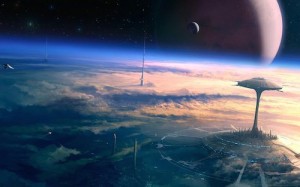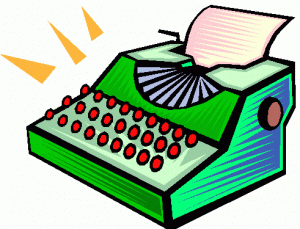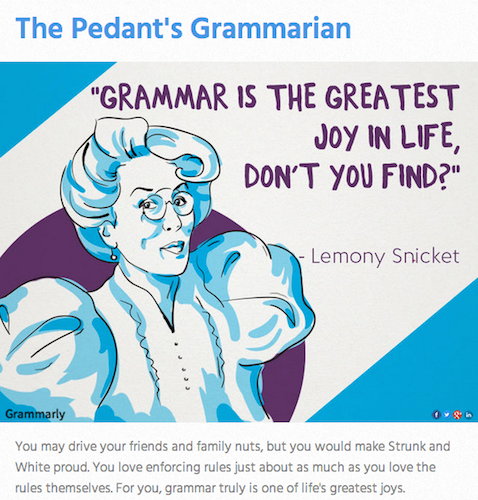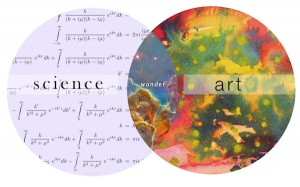by Naomi L. | April 8, 2015 | Blog, Creative Writing |
After starting a set of posts on the comparison between artistic and scientific writing, today I’d like to take a break to discuss a related topic that’s been on my mind for a while: science fiction. With all the brainstorming I’ve been doing regarding science and art, I figured now would be the best time to talk about why I love the intersection between the two so much. So on that note, here is a brief list of reasons why I love science fiction. Enjoy!
1) It reconciles my two great passions: science and art.
 As I’ve made all too clear by now, both science and art fascinate me immensely. I’m incredibly proud to be able to call myself a scientist and an artist, so their crossover area is basically my playground. It stands to reason, therefore, that science fiction is right up my alley. Combining elements of both worlds, sci-fi stories appeal to my artist side for the creative reimagining of our universe and to my scientist side for the exploration of the potential in real scientific theories. For someone like me who practically lives in this intersection, it doesn’t get much better than that.
As I’ve made all too clear by now, both science and art fascinate me immensely. I’m incredibly proud to be able to call myself a scientist and an artist, so their crossover area is basically my playground. It stands to reason, therefore, that science fiction is right up my alley. Combining elements of both worlds, sci-fi stories appeal to my artist side for the creative reimagining of our universe and to my scientist side for the exploration of the potential in real scientific theories. For someone like me who practically lives in this intersection, it doesn’t get much better than that.
2) It stimulates real scientific thinking.
One thing I notice whenever a major sci-fi movie comes out is a surge in discussions – both online and off – about how realistic it is. With films like Gravity and Interstellar comes a rise in articles and social media posts by actual scientists explaining the real workings of physics in outer space and pointing out the common inaccuracies in these movies. The same thing happens (albeit to a lesser degree) with stories about other scientific themes such as time travel, dystopian futures, robot uprisings and zombie apocalypses. And I, for one, love having those discussions with my friends and fellow academics. As a writer, I have nothing against a little artistic license, but as a biologist, I encourage the clarification of facts to make sure the truth isn’t buried too far beneath the fiction. As I like to think of it, ignorance is bliss, but knowledge is power.
3) It’s the ultimate “What if?”
I’m sure by now it’s only too obvious that “What if?” is my favorite type of writing-related question. I love imagining what sorts of stories could play out around a single major condition, and no genre can pique that curiosity like science fiction, because changing one detail means altering the entire universe as we know it. What if there’s intelligent life on other planets? What if computers had the intellectual capacity of humans? What if there were a virus that could turn people into zombies? Writing science fiction is like creating infinite parallel worlds with incredible possibilities, all with the power of our minds! How cool is that?
4) It unites people like no other genre can.
Some may not necessarily see this as a good thing, but I’ve always found it interesting how sci-fi has this indomitable power to bring people with similar interests together in a way that no other genre of fiction can. I make no secret of being a so-called nerd and proud of it, so knowing there are tons of people out there who also embrace that eccentric side of themselves is heartwarming. Science fiction offers a unique common ground for those of us who choose to occasionally forget this world and explore the possibilities contained within alternate realities. And if we can share that passion with each other, that makes our love of sci-fi all the more enjoyable.
5) It’s fun to indulge in!
For all the above reasons and more, science fiction is fun, as much to read and watch as to write. I love getting lost in alternate worlds, and sci-fi offers that escape in so many different flavors that I sometimes wonder how I manage to tear myself away from it long enough to face reality again. I could spend hours indulging in these fascinating stories, so if you appreciate science and art like I do, science fiction is definitely the genre for you! Enjoy!
What about you? Why do (or don’t) you like science fiction?
by Naomi L. | April 1, 2015 | Blog, Creative Writing, What If? Writing Prompts |
I’m afraid I have some bad news. The thing is, I’m getting a little tired of these “What If?” Writing Prompts, so this will probably be my last post for this segment. It’s hard to come up with these all the time, and I just can’t handle it anymore. Sorry, it’s been fun, but it’s time to move on.
April Fool’s! I know, that was totally lame, but I couldn’t resist. Of course these never get old; I love coming up with new writing prompts every month! But anyway, I realized about a month ago that April 1st would fall on a Wednesday this year, and while thinking about possible jokes for that week’s creative writing post, it suddenly occurred to me that I had yet to include comedy on my list of “What If?” themes.
So without further ado, here’s a new batch of prompts for you, set to one of the hardest genres to write for: humor. I hope you’ll find these ideas fun, and may they inspire you to come up with your own! Enjoy!
 What if… a witch cursed you to speak only in rhymes?
What if… a witch cursed you to speak only in rhymes?
What if… you were lost and the only person around to ask for directions were a mime?
What if… your life became a musical for a day?
What if… an annoying sound played in your head every time you heard someone tell a lie?
What if… you could hear pets say what they really think of their owners?
Have fun writing your own humorous stories!
If you have any “What If?” writing prompt suggestions (for any theme), please feel free to share them in the comments below. Ideas I like may be featured in future “What If?” posts, with full credit and a link to your blog (if you have one)! Also, if you’ve written a piece based on an idea you’ve found here, be sure to link back to the respective “What If?” post. I would love to see what you’ve done with the prompt! Thank you!
by Naomi L. | March 25, 2015 | Blog, Creative Writing |
Last week, I started a new series of posts on the overlap of my two favorite topics: art and science. After discussing the similarities and differences between artistic and scientific reading, today I’d like to talk about the next major aspect of this creative intersection: writing. How do art and science compare when it comes to composition? Let’s explore!
How the Art is like the Science
When thinking about what art and science have in common, one of the first similarities to come to mind is the written word. Ideas of any kind are often best communicated through writing, so it’s important to know how to convey one’s thoughts as eloquently as possible. As I previously mentioned about reading, our minds have learned to make sense of prose through a set order, and writers of fiction and non-fiction alike must respect that order if their work is to be understood.
Whether we write artistically or scientifically, we have to know how to grab our readers and hold their interest throughout a given work. A good title will attract an audience that shares our interests. The introductory portion establishes our style and the main idea of the whole piece. We must include a clear objective and the promise of action by the middle of the work, and that action must lead to a resolution of conflict by its conclusion. In art and science alike, everything we write must somehow tie together in the end.
Much like reading, writing is fundamentally the same whether it’s done artistically or scientifically. Yet art and science also differ greatly, and in my opinion, nowhere do these disparities shine brighter than in their composition.
How the Art is unlike the Science
When we write artistically, we have all the freedom in the world to experiment with words and ideas to turn out an interesting piece. We can write about anything from magic and myth to true events in history. We can start in the middle and halfway through jump back to the beginning. We can elaborate on the tiniest details or leave everything but plot up to the reader’s imagination. We can write themes and endings that are either thoroughly conclusive or open to interpretation. The possibilities are endless.
 The same freedoms generally don’t apply to science, however. Because academic papers all have to be comprehensible in the same manner, they come with strict rules and guidelines for how to write them. That isn’t to say that we can’t be creative at all, of course; just that there are far more restrictions to work with than in artistic writing. We’re more than welcome – even encouraged – to demonstrate creative thinking, as long as it’s presented with a title, an abstract, an introduction, materials and methods, results, a discussion, and a conclusion. When the point is to convey our ideas as clearly as possible, organization is key.
The same freedoms generally don’t apply to science, however. Because academic papers all have to be comprehensible in the same manner, they come with strict rules and guidelines for how to write them. That isn’t to say that we can’t be creative at all, of course; just that there are far more restrictions to work with than in artistic writing. We’re more than welcome – even encouraged – to demonstrate creative thinking, as long as it’s presented with a title, an abstract, an introduction, materials and methods, results, a discussion, and a conclusion. When the point is to convey our ideas as clearly as possible, organization is key.
Writing prose is both an art and a science at its core, so it’s up to the writer to master the balance between these approaches and know how to make the most of their individual strengths to turn out truly creative works. And that is exactly what I love about creative writing: it appeals to both the artist and the scientist in me! I sincerely hope you can appreciate this beautiful intersection of art and science as much as I do! Thanks for reading!
by Naomi L. | March 18, 2015 | Blog, Creative Writing |
I mentioned at the beginning of January that it would be difficult for me to keep up with writing because I would be particularly busy this year. I’m currently in the middle of pursuing a Master’s degree in Marine Ecology, so much of my time is being occupied with science. And with the various types of writing I’ve been trying to manage at the same time, that’s gotten me thinking about the similarities and differences between writing artistically and writing scientifically.
So to take advantage of my position between both worlds, I’d like to start discussing on my blog the comparisons between art and science. There are so many points to note, however, that the best way to go about it would be to create a whole subcategory around this topic! That’s why I decided to distribute my observations among several posts. To start off, here’s a brief discussion on the similarities and differences between art and science when it comes to reading. Enjoy!
How the Art is like the Science
Whether it’s for artistic inspiration or scientific knowledge, reading is reading at its core, simple as that. We read for one main reason: to acquire new ideas and information. That’s why when we read prose of any form, we always look for the same fundamental outline behind the content.
The first thing we seek is that big opener: a killer title and a few great introductory lines to hook us from the get-go. These are what help us decide whether the rest of a piece is worth reading, so a good first impression is always important. A striking title will draw our attention to the piece as a whole, and the first few lines after that will give us a sense of the author’s style and direction for the rest of the work.
From there, we move on to the introduction. Whether it’s the opening scene of a novel or the initial paragraphs of a scientific paper, a good introduction properly sets the tone and establishes the theme of the work, so that by the time we get to the heart of it, we understand what it is we’re reading about. That’s when we want to start seeing action. Conflict exists as much in fantasy worlds about magic beings as it does in the real world of scientific discoveries, and we want to see it resolved through the characters’ or the author’s methods until a conclusion is reached either through climactic scenes and denouement or analyzed results and discussions. And let’s not forget that satisfying takeaway feeling we seek when the reading is done!
So reading fiction and reading non-fiction are actually quite similar in many ways. But perhaps it’s in their differences that the true beauty lies…
How the Art is unlike the Science
Of course, outside of a basic structure, art and science differ significantly in their overall purpose. In one, we seek to lose ourselves in narrative, to feed our imagination with fictitious accounts of people who (in most cases) exist only in our heads. In the other, we seek to fill our minds strictly with the truth and consequently expand our knowledge and understanding of the real world around us. Perhaps that’s the greatest deciding factor when choosing which to read: whether we want to engage in fiction or reality.
 Art is intended to appeal to our creative desires. We indulge in artistic composition because it offers an escape from the common and tedious details of everyday life. Even true stories offer this release when narrated creatively enough, which is why even the most fascinating of real-life tales can only be considered such when told with a touch of art to embellish the facts. Literature is first and foremost a form of art, and thus any written work takes skill in creative technique in order to draw us in and keep us hooked to the very last word.
Art is intended to appeal to our creative desires. We indulge in artistic composition because it offers an escape from the common and tedious details of everyday life. Even true stories offer this release when narrated creatively enough, which is why even the most fascinating of real-life tales can only be considered such when told with a touch of art to embellish the facts. Literature is first and foremost a form of art, and thus any written work takes skill in creative technique in order to draw us in and keep us hooked to the very last word.
Science, on the other hand, appeals to our logical side. Those of us who seek knowledge about the real world indulge in scientific papers and non-fiction texts to satisfy our natural human curiosity. Unlike fiction that freely comes in various styles, scientific papers must always follow the same basic outline: title, abstract, introduction, materials and methods, results, and discussion. We always know exactly what to expect when we read academic texts, so we can focus on the content and zero in on the information we want. Writing itself is something of a science, for our minds have long been trained to search for a logical sequence in order to make sense of any piece of prose. If a written work is worth the time to read, we’ll come out a little smarter for it.
When it comes to creative writing, art and science are quite different in many ways, but they can also be surprisingly similar. I hope you’ll enjoy exploring the “likes and unlikes” between my two favorite topics with me in the future! Thanks for reading!
by Naomi L. | March 11, 2015 | Blog, Creative Writing |
Ready to celebrate National Grammar Day? Then you’d better hop in a time machine and jump back to last week, because it was March 4th. Sorry! Being the total ditz/busy grad student that I am, I neglected to mark the date on my calendar and completely missed my chance to kick off Grammar Day on my blog. That’s OK, though, because every day is a good day to appreciate grammar!
To mark the occasion, the good folks over at Grammarly have created a quiz to help you determine what kind of grammar nerd you are. Take the quiz and share your result in the comments below!

And while you’re at it, why not take a moment to try out their grammar checker? It’s quick, highly accurate, and best of all, free! Prolific writers, take note: you can also subscribe to a premium account on Grammarly.com for as low as $11.66 a month to gain full access to a spelling and grammar checker ten times more powerful than your word processor!
So what are you waiting for? Proofread your texts with Grammarly and start celebrating proper use of grammar today! Happy Grammar Day!
Oh, and in case you’re wondering, I’m a Pedant’s Grammarian. No surprises there!

Today’s creative writing post is brought to you by Grammarly, the World’s Best Grammar Checker. All opinions expressed in this article are my own. For more information on Grammarly, visit http://www.grammarly.com/grammar-check. Thanks for reading! Happy writing!
by Naomi L. | March 4, 2015 | Blog, Creative Writing, What If? Writing Prompts |
I hope you’re in the mood for some more “What If?” Writing Prompts! This week’s batch features some new fantasy and science fiction prompts for you to enjoy. See what sorts of fantastic tales you can spin around these ideas! Have fun!
 What if… magic were a subject taught in school?
What if… magic were a subject taught in school?
What if… mirrors functioned as portals into a backwards universe?
What if… computers could read human thoughts?
What if… you discovered you had the ability to bend time and space?
What if… you had supernatural powers that you couldn’t control?
Good luck creating your own fantasy and science fiction stories!
If you have any “What If?” writing prompt suggestions (for any theme), please feel free to share them in the comments below. Ideas I like may be featured in future “What If?” posts, with full credit and a link to your blog (if you have one)! Also, if you’ve written a piece based on an idea you’ve found here, be sure to link back to the respective “What If?” post. I would love to see what you’ve done with the prompt! Thank you!
 As I’ve made all too clear by now, both science and art fascinate me immensely. I’m incredibly proud to be able to call myself a scientist and an artist, so their crossover area is basically my playground. It stands to reason, therefore, that science fiction is right up my alley. Combining elements of both worlds, sci-fi stories appeal to my artist side for the creative reimagining of our universe and to my scientist side for the exploration of the potential in real scientific theories. For someone like me who practically lives in this intersection, it doesn’t get much better than that.
As I’ve made all too clear by now, both science and art fascinate me immensely. I’m incredibly proud to be able to call myself a scientist and an artist, so their crossover area is basically my playground. It stands to reason, therefore, that science fiction is right up my alley. Combining elements of both worlds, sci-fi stories appeal to my artist side for the creative reimagining of our universe and to my scientist side for the exploration of the potential in real scientific theories. For someone like me who practically lives in this intersection, it doesn’t get much better than that.
 What if… a witch cursed you to speak only in rhymes?
What if… a witch cursed you to speak only in rhymes?
 The same freedoms generally don’t apply to science, however. Because academic papers all have to be comprehensible in the same manner, they come with strict rules and guidelines for how to write them. That isn’t to say that we can’t be creative at all, of course; just that there are far more restrictions to work with than in artistic writing. We’re more than welcome – even encouraged – to demonstrate creative thinking, as long as it’s presented with a title, an abstract, an introduction, materials and methods, results, a discussion, and a conclusion. When the point is to convey our ideas as clearly as possible, organization is key.
The same freedoms generally don’t apply to science, however. Because academic papers all have to be comprehensible in the same manner, they come with strict rules and guidelines for how to write them. That isn’t to say that we can’t be creative at all, of course; just that there are far more restrictions to work with than in artistic writing. We’re more than welcome – even encouraged – to demonstrate creative thinking, as long as it’s presented with a title, an abstract, an introduction, materials and methods, results, a discussion, and a conclusion. When the point is to convey our ideas as clearly as possible, organization is key. Art is intended to appeal to our creative desires. We indulge in artistic composition because it offers an escape from the common and tedious details of everyday life. Even true stories offer this release when narrated creatively enough, which is why even the most fascinating of real-life tales can only be considered such when told with a touch of art to embellish the facts. Literature is first and foremost a form of art, and thus any written work takes skill in creative technique in order to draw us in and keep us hooked to the very last word.
Art is intended to appeal to our creative desires. We indulge in artistic composition because it offers an escape from the common and tedious details of everyday life. Even true stories offer this release when narrated creatively enough, which is why even the most fascinating of real-life tales can only be considered such when told with a touch of art to embellish the facts. Literature is first and foremost a form of art, and thus any written work takes skill in creative technique in order to draw us in and keep us hooked to the very last word.


Recent Comments